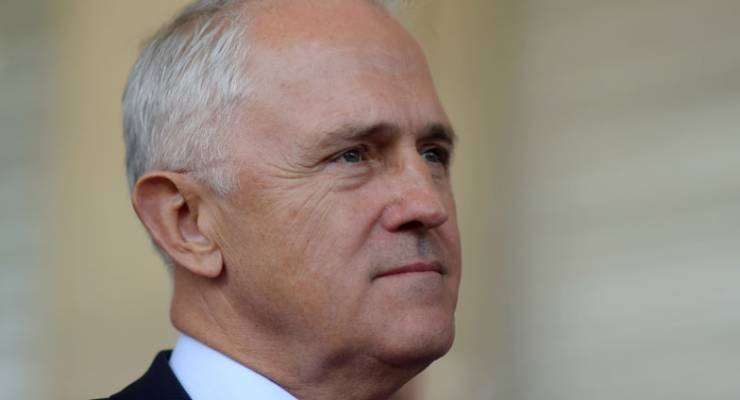
Children as young as 14 would be subject to control orders, and those convicted of terrorism who have served their sentences but failed to show remorse would remain in jail under plans announced by Prime Minister Malcolm Turnbull.
Turnbull announced that Attorney-General George Brandis would be convening a meeting of state and territory attorneys-general to seek to implement post-sentence preventative detention orders to keep “high-risk” terrorist offenders in prison after the end of their sentences. Brandis said that this would be similar to post-sentence detention measures for sex offenders and other violent offenders where they remain a risk to the community and are thought incapable of rehabilitation.
Each state and territory would have to introduce legislation in their respective parliaments, and states and territories gave in-principle agreement at the Council of Australian Governments in April. Brandis said that it would have court oversight, with regular reviews of the orders made.
The government also announced it would proceed with the last counter-terrorism legislation entered into Parliament — but not passed — before the election. The most controversial of the legislation includes the change to allow children as young as 14 to be subject to control orders, down from the current age of 16. Brandis said the recommendations of the committee would be adopted, and that control orders for 14- to 17-year-olds would be different from those issued to adults. The committee recommended ensuring that young people subject to the court orders should have legal representation, and the AFP should serve the control orders to the parent or guardian of the young person.
The 21 recommendations of the committee will be adopted, and Turbull said he would reintroduce the legislation into Parliament once Parliament begins sitting at the end of August.
Many civil liberties and legal groups expressed concern about the broad control order regime. A joint council of civil liberties submission said that it was opposed to control orders and preventative detention orders as they represented “unnecessary and unjustified encroachments on rights and liberties and rule of law principles”:
“Our general opposition to control orders is that they undermine the rule of law in that the conditions imposed are coercive and punitive and breach important liberties and rights and should not be imposed without a fair trial process and conviction. This is so for adults. The significance of such an unnecessary breach of rights and liberties is considerably greater when the imposition is on school age children. It is a very serious step. “
The groups said that it was difficult to see how control orders could be effective because most terrorist attacks have been carried out by people unknown to authorities, and pushing control orders on younger people would only make deradicalisation efforts tougher:
“It is highly likely that the imposition of control orders on 14-15 year olds will generate anger and alienation within the child’s immediate family and community and more generally within the Muslim community in Australia.”
The Law Council of Australia describes control orders as “significant restrictions on a person’s liberty without following the normal criminal process of arrest, charge, prosecution and determination of guilt beyond a reasonable doubt”.
The former Independent National Security Legislative Monitor said control orders were “not effective, not appropriate, and not necessary” for people who have not been convicted of terrorist offences and recommended they be repealed. The Australian Human Rights Commission recommended against control orders for 14- to 16-year-olds and instead suggested a full review of the control order and preventative detention regimes.
The committee noted the criticism of the control order scheme but refused to engage with it, stating that “the Committee has not in this inquiry examined the merit of these regimes, but has instead focused on the provisions of the Bill before the Parliament,” and said that these regimes would sunset in September 2018.
The government will also be introducing a new offence for the advocacy of genocide.








Surely, the first two paragraphs of this article are in complete contradiction to the findings of the Dunedin studies, that keeping adolescents in jail does not achieve ends that civilised society requires?
“Floggings will continue until morale improves” eh, Malcolm?
Well put Mr Smith, isn’t Malcolm distantly related to Captain Bligh?
I for one would like to welcome our new overlords, and stand behind them to deny natural justice, rule of law, habeus corpus, all to protect us from those 14 year olds. (yes, I meant this ironically)
Why don’t they do away with the f***ing around and just table a Thought Crimes Act?
Are they imprisoned for thoughts or for terrorist actions?
The words “George Brandis” and “Attorney General” are about as compatible as shit and silver – in that order…
Going to be funny watching Freedom Boy vote these things up.